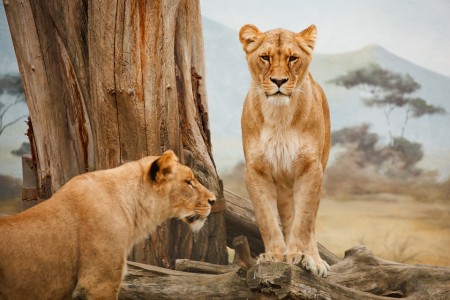Why are there not more lions when there’s plenty of prey on the African savanna?
A research team including two University of Guelph ecologists has discovered an unexpected pattern linking prey and predator species in diverse ecosystems worldwide.

Integrative biology professors John Fryxell and Kevin McCann co-authored the paper, published today in Science. The team included researchers at McGill University, the University of British Columbia and the Perimeter Institute for Theoretical Physics in Waterloo, Ont.
Beyond lions and the gazelles they hunt on the African savanna, the pattern extends to all organisms studied by the team, from the smallest plankton-eating crustaceans in the oceans to the biggest fish in lakes and streams.
The team found that relative amounts of predator and prey biomass in diverse ecosystems around the globe are “remarkably well-predicted by a simple mathematical function called a power scaling law,” says McCann.
The resulting “power law” shows there are always fewer top predators than expected in resource-rich ecosystems than in resource-poor ecosystems.
The researchers looked at biomass and production measurements in grasslands, forests, lakes and oceans. They analyzed results of more than 1,000 earlier studies conducted in more than 1,500 locations worldwide.
No matter where they looked, they found the same predator-prey ratios. “We kept being astonished,” said McCann. “This is just an amazing pattern.”
As you add more individuals of prey species to a resource-rich ecosystem such as the savanna, you might expect the biomass of predators to increase at the same rate, says Fryxell.
Instead, the ratio of predators to prey falls dramatically in that productive grassland.
“What is it about a productive system that accounts for reduced predator success?” he said. “When a system is teeming with prey, why are predators leaving so much food on the table?”
Biologists don’t yet have all the answers.
Fryxell says prey species reproduce more slowly in the most abundant and species-rich ecosystems, which might affect the predator-prey power law.
He says the paper calls for a new look at ecological mechanisms that shape food-webs in similar ways around the planet.
Understanding these processes will likely yield better ways of conserving and managing natural resources, said Fryxell.